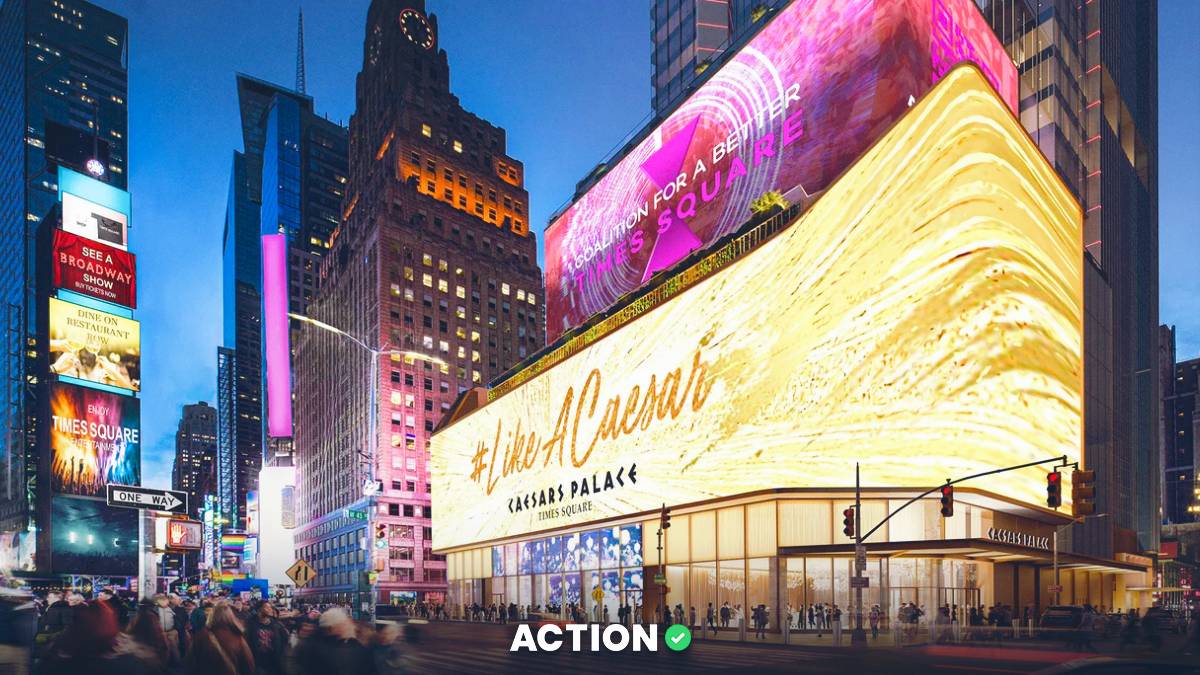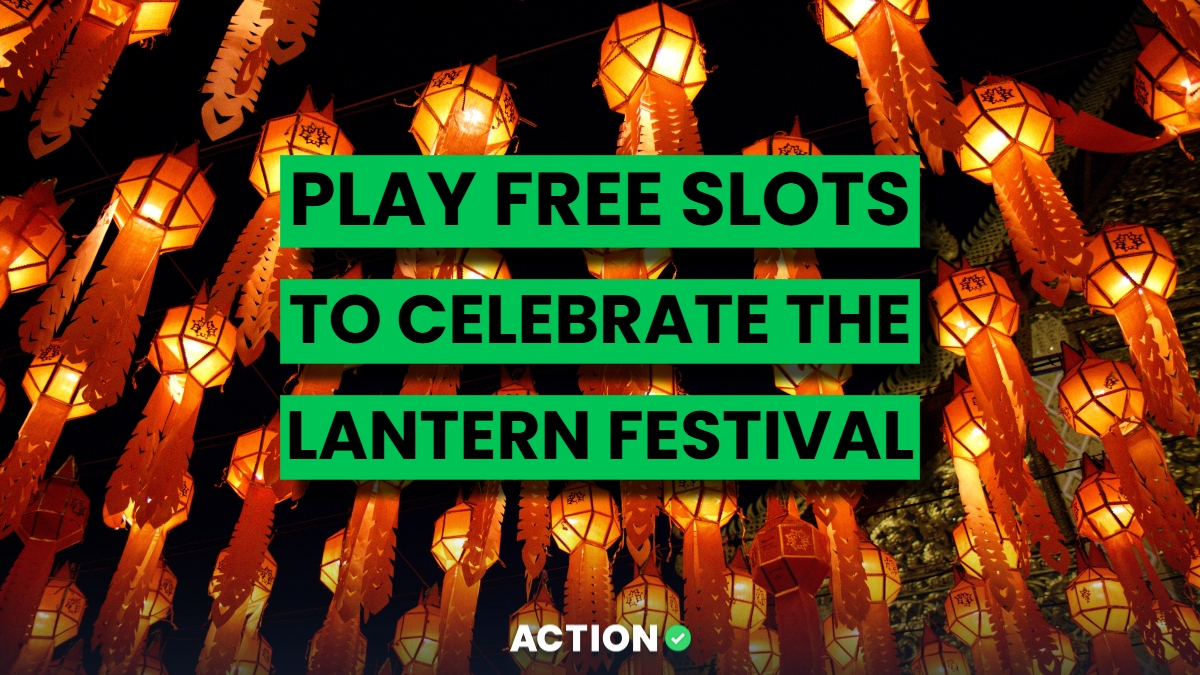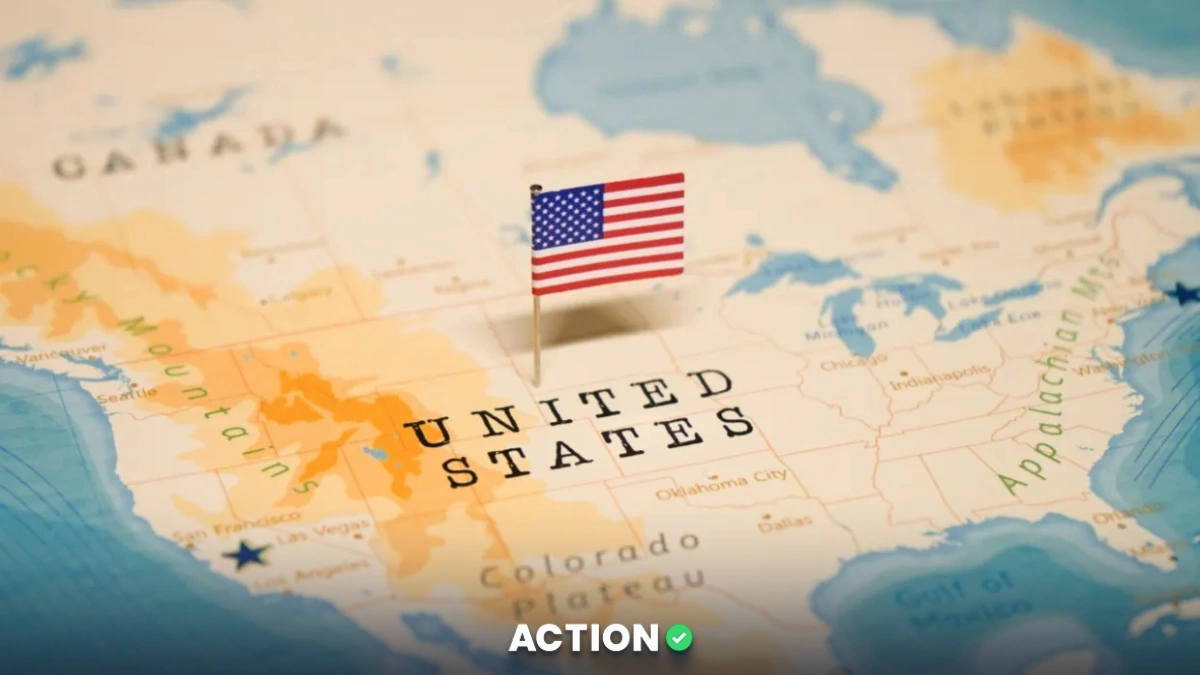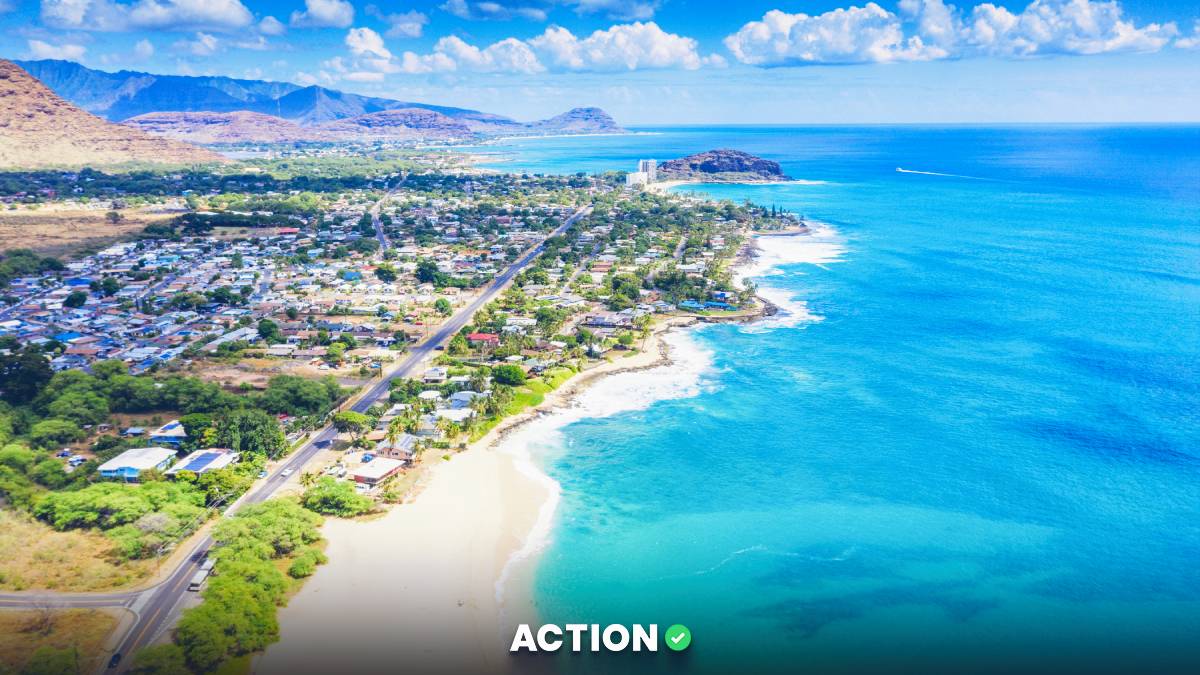Start spreading the news. The Times Square Casino project is staring at a rally and a reversal.
The team behind the Caesars Palace Times Square casino bid is changing its funding strategy ahead of a public rally against the project later today.
First, the reversal.
The team behind the Caesars Palace Times Square casino bid recently made a significant change to their funding strategy following public criticism. SL Green Realty, Roc Nation, and Caesars Entertainment initially planned to allocate millions to a single affordable housing complex, but have now shifted their focus to benefit the broader community.
Meanwhile, many who oppose the plan will hold a rally against the project later today.
What Was the Original Funding Plan for the Times Square Casino?
Originally, the developers intended to support Manhattan Plaza, an affordable housing complex in Hell’s Kitchen, with a hefty funding package.
This plan included $22.5 million spread over 15 years and a lifetime share of 0.5% from the casino's profits. However, many questioned whether this funding concentrated too much on one location and lacked clarity in its management.
Why the Public Backlash?
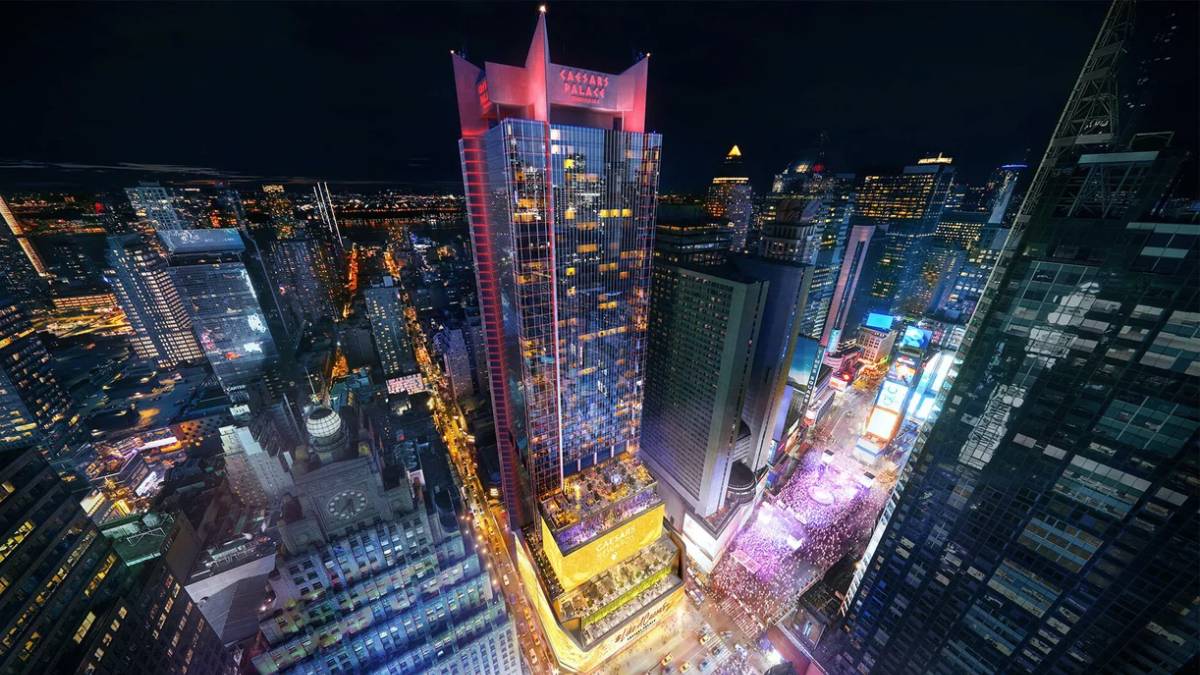
The backlash primarily emerged from local organizations and West Side residents.
They expressed dissatisfaction with the idea that only Manhattan Plaza residents would benefit significantly while the broader community might not. The lack of transparency regarding how these funds would be managed and distributed fueled concerns that the plan favored one building over the entire neighborhood.
Today, the public gets a chance to share their thoughts on the proposed casino in the center of New York City. The Caesars Palace Times Square project will hold its first public hearing.
As a sign of protest, several Broadway theaters will light up their digital marquees with the message "No Times Square Casino" just before the rally begins. Theaters like the Majestic, the Palace, and the Saint James are among those participating. The community rally is scheduled to run from 8 a.m. to 10:30 a.m. and again from 4 p.m. to 5:30 p.m.
The Course Reversal
In response to the criticism, the casino partners have revised their funding strategy.
The money will now go to the West Side Community Fund, a nonprofit that can distribute small grants to various community groups across Hell’s Kitchen, Chelsea, and Hudson Yards.
This new direction is accompanied by additional safeguards designed to ensure transparency and fairness. The new plan benefits include:
- Participatory Budgeting: The updated plan involves local stakeholders in decision-making. Residents, block associations, small businesses, and civic groups will contribute to determining how the funds are used.
- Broader Impact: By redirecting funds to the West Side Community Fund, the developers aim to benefit a larger segment of the community rather than focusing on one building.
The developers emphasized that their updated plan reflects what the community wanted, hoping to spread funds fairly across the entire Westside area, not just Manhattan Plaza.
Public criticism of the original plan, which focused heavily on one building, led the developers to change course. By redirecting funds to benefit the whole community and adopting a more transparent approach, they hope to better meet the needs of the entire West Side.
The Bigger Picture for the Times Square Casino Project
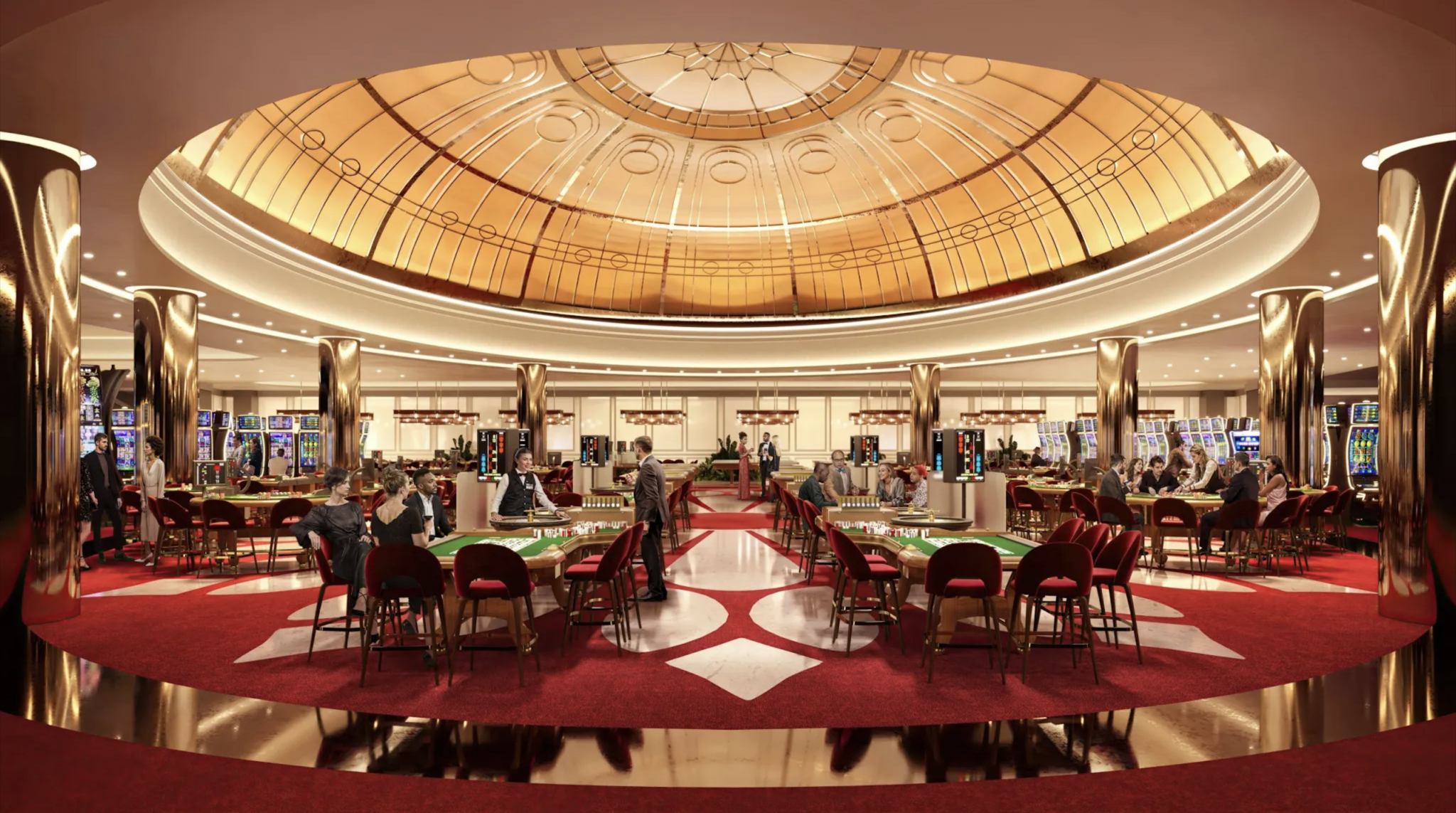
This restructuring is part of a larger effort as casino developers vie for three downstate gaming licenses in New York.
The Times Square Casino plan is ambitious. It features a $5.4 billion casino, hotel, and entertainment skyscraper, and promises various community projects, including contributions to public safety, a civil rights museum, and healthcare facilities. Developers hope to reimagine 1515 Broadway.
Renderings of the inside of the casino complex reveal a rooftop observatory, further integrating luxury with unparalleled city views.
Despite these promises and the backing of over 200 organizations, the Times Square casino bid still faces opposition. Some Broadway groups, civic associations, and local residents remain concerned about potential adverse effects on the area's cultural scene and livability.
The controversy stirred up by the project, combined with today's opposition rally, appears to be making this an uphill climb for developers.
Battle for Three Downstate Casino Licenses Continues in New York
All of this is happening in the shadow of the elephant in the room.
Even without public backlash to the project, before anything can happen, the developers need to get one of the three downstate casino licenses. It's a tough competition with eight proposals being considered, including ones in Midtown Manhattan, Coney Island, and Yonkers.
Some existing places like Resorts World New York City and Empire City Casino also want to upgrade to full-scale casinos. Applications were turned in on June 27. The decisions on who gets the licenses are expected by December 2025.
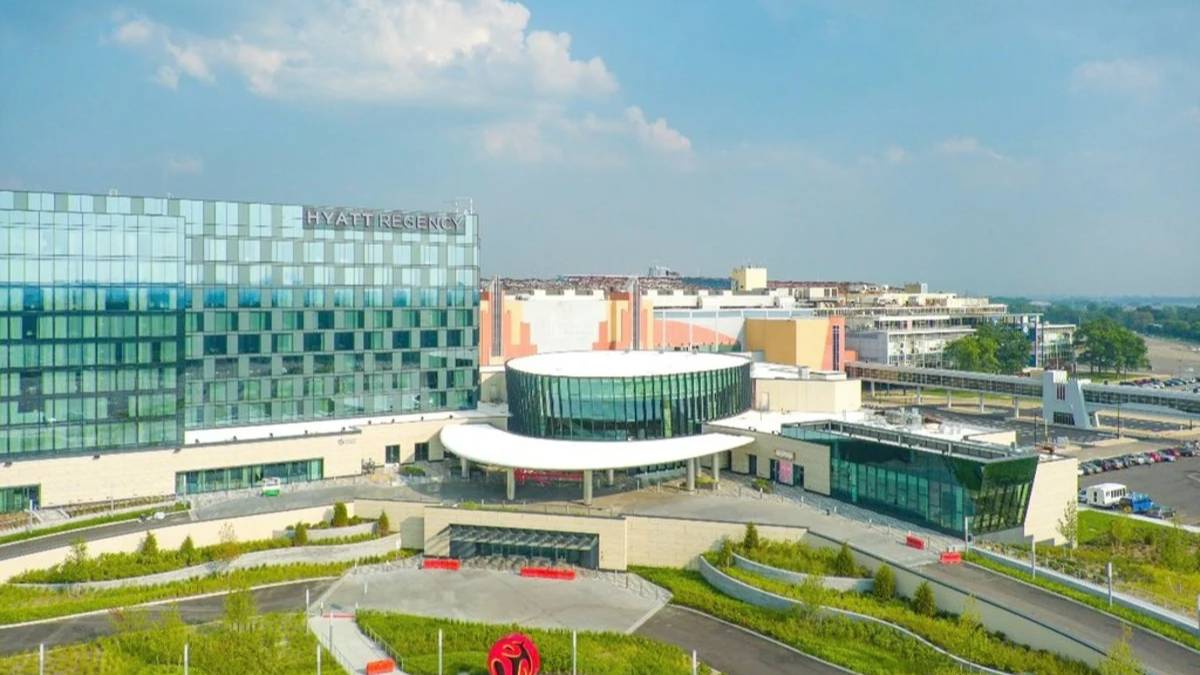
As part of the application process, each group was required to submit its plans to the New York State Gaming Commission and pay a non-refundable fee of $1 million.
If they win, successful applicants must pay a $500 million licensing fee and invest at least $500 million in their projects. Here’s what’s next:
Each proposed site also had to set up a Community Advisory Committee (CAC) to listen to local opinions and get a feel for community views. These committees, made up of state and local representatives, must hold at least two public meetings. Developers need to get approval from two-thirds of the CAC members by September 30, 2025, to stay in the race.


